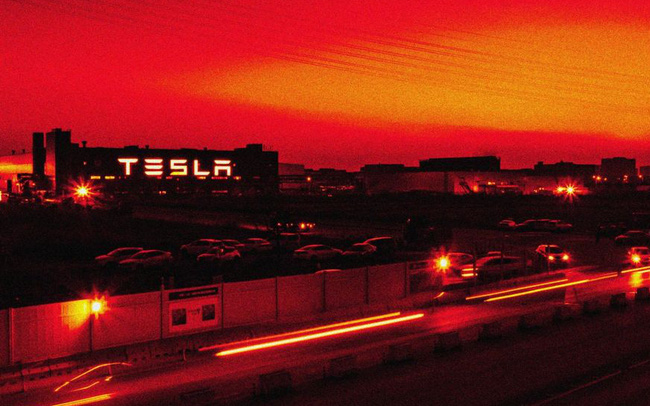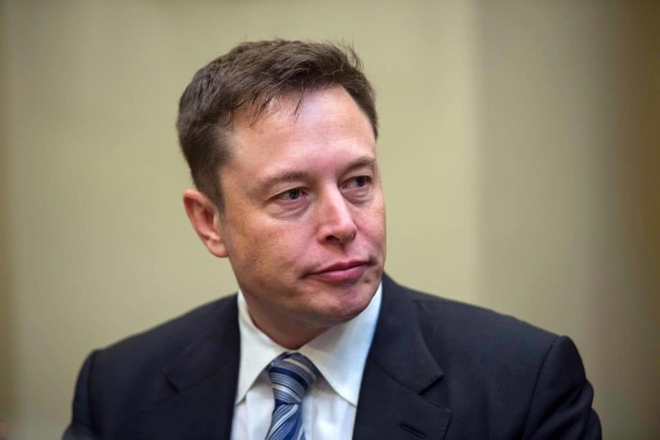Tesla “falls off the horse” and a great lesson for foreign businesses when doing business in China
- Tram Ho
Huang Jiaxue – a businessman in Wenzhou (China), was delighted when he received a Tesla Model 3 late last year. The car is sleek, eco-friendly and even locally produced. However, in May, he quickly sold the car and suffered a 25% loss for 249,000 yuan ($38,600).
“The reason is safety concerns,” Huang said. He mentioned domestic articles about Tesla’s brake system failing. “Reading the news about this every day makes me scared to drive,” he said.
So far, there is little concrete evidence that the brakes on Tesla cars made in China are wrong. However, one thing is clear that Elon Musk’s “honeymoon” in the billion-population market has come to an end.

After walking the red carpet, hailed by Beijing officials, Tesla must now rethink its strategy, from customer service to public relations in a key market for its long-term ambitions. of the billionaire.
Last month, Chinese authorities ordered a recall of almost all Tesla vehicles sold in the country, or more than 285,000 units, to deal with software errors. The reason is because authorities are concerned about Tesla cars being able to send data back to the US. Furthermore, local electric carmakers like Nio and Xpeng are posing a challenge to Tesla’s dominance.
Of course, such situations are not far-fetched for most foreign businesses in China. In this country, consumer psychology is easily shaken by the “storms” on social networks. And here’s the problem: the “halo” of Tesla and Elon Musk may no longer be able to help them avoid the risks in China.
According to Bill Russo – former CEO of Chrysler, now CEO of consulting firm Automobility, Tesla’s lesson is that this is a warning shot for foreign businesses to know their boundaries and not be too ostentatious with the success of the company. myself. “They can’t go far if they’re too arrogant,” he said.
Before that, Beijing was very generous and friendly with Tesla when it supported the company to build a factory in Shanghai and help it reopen quickly after the pandemic. China’s policymakers want to demonstrate that they remain open to international business. However, with China’s border still closed and President Joe Biden stating that the US and China are still rivals, that friendliness has gradually faded.
Signals of a tough stance on Tesla began to emerge in early February, when agencies including the State Administration for Market Regulation (SAMR) convened executives to discuss the matter. quality and safety of Tesla vehicles. After that, Tesla quickly apologized for the shortcomings.

However, this response did not prevent consumer criticism from “woven” into bigger problems. At the Shanghai Auto Show in April, a woman blamed a faulty brake on her Model 3 and caused the accident, killing almost all four of her family members. Therefore, a protest protest took place right at the Tesla booth.
Initially, Tesla’s reaction was quite harsh, when the director of external relations Grace Tao thought that this woman was being manipulated and said her car was still operating normally when the accident happened. However, the criticism quickly flooded social networks and media, and the electric car company was forced to issue an apology.
Currently, Tesla is working to build relationships with local media and KOL on platforms such as Weibo and WeChat to rebuild “image”. In addition, Tesla China Vice President Tom Zhu also meets with the media more in person than before and is now the decision maker on communication matters.
According to research firm JL Warren Capital, after the incident at the auto show, Tesla’s number of new orders over a period of several weeks fell by as much as 50%. It can be seen that consumer demand has dropped quite clearly.
Now, the biggest question for Tesla is whether the Chinese government will change its approach to them. Until recently, the “non-verbal” agreement between Musk and Beijing seemed to have a relatively clear answer. To gain China’s support, the company will use its brand and high-tech expertise to attract Chinese consumers to electric vehicles, while promoting other electric car production in the region. developed country.
However, according to Tu Le, a former Ford executive and now director of consulting firm Sino Auto Insights, the increasing technical level of Chinese electric car makers means that Tesla will no longer exist. 1. To achieve its ambitious goal of electric vehicles, the Chinese government will need Tesla to give the sector a boost.
For now, it will take a while longer to determine whether Tesla’s sales in the billion-population market will.
Refer to Bloomberg
Source : Genk
